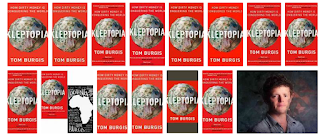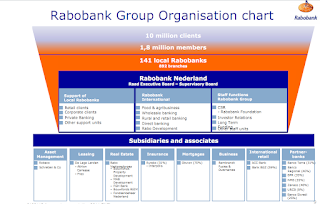Zwart Geld. Ruzzisch.
Filip Novokment, Thomas Piketty en Gabriel Zucman zijn op zoek gegaan naar financieringsstromen van de Russische handelsbalans. Volgens berekeningen heeft Rusland sinds 1990 structureel een overschot op de handelsbalans en daarmee zouden er een even groot [..] activa aanwezig zijn in het buitenand, van Russische eigenaar. Maar dat blijkt niet zo te zijn. De buitenlandse activa zijn nauwelijks meer dan de passiva hetgeen zou aantonen dat de Russen geld over de Russische grens hebben meegenomen en deze in buitenlandse instellingen hebben gedeponeerd. Volgens de onderzoekers zou het om een bedrag van 85% van het BNP van Rusland gaan, dat in het buitenland gestald is.
[in 2017 was dat rond de 4 duizend miljard usd, dus ca. 3000 mrd usd zit dus ergens in het buitenland... waarvan het westen beslag heeft gelegd op enkele procenten, dusver. Daar liggen dus nog kansen]
Maar om naar dit geld op jacht te gaan, zou alle witwaspraktijken onderzocht moeten worden. OF dat gaat lukken - dit alles is afkomstig van Paul Krugman (NYT 27 feb.) - moeten we de komende maanden afwachten.
...
 |
| Dirty Money bevat ook een heel hoofdstuk over Rusland en de oligarchen van Poetin* |
Piektty zegt in een interview (El Pais 28 nov 2021) dat de wereld nu op het zelfde punt staat als in de ten tijde van de Franse Revolutie. De toegenomen schuld is te wijten aan het feit dat de geprivilegieerde klasse geen belasting wil betalen.. En wat gebeurde er toen, een revolutie en het einde van de privileges.
Afsluitend zegt hij iets over zijn rol als professional: ik ben intellectueel, en heb gekozen om boeken te schrijven, niet om guerrillero te worden (en een revolutie een zet te geven).
-- bron, o.a:
This paper ... provide consistent series on the accumulation and distribution of income and wealth in Russia from the Soviet period until the present day. We find that official survey-based measures vastly under-estimate the rise of inequality since 1990. According to our benchmark estimates, top income shares are now similar to (or higher than) the levels observed in the United States. We also find that inequality has increased substantially more in Russia than in China and other ex-communist countries in Eastern Europe. We relate this finding to the specific transition strategy followed in Russia. According to our benchmark estimates, the wealth held offshore by rich Russians is about three times larger than official net foreign reserves, and is comparable in magnitude to total household financial assets held in Russia.
concluderend:
During the 1917-1989 period, inequality stood at low levels everywhere, but the compression of inequality was particularly extreme in Russia.
...
We have found that official inequality estimates vastly underestimate the concentration of income in Russia. We have also provided the first complete balance sheet series for private wealth, public wealth and national wealth in post-Soviet Russia, including an estimate of offshore wealth.
...
Our findings on long run distributional trends in Russia also confirm the importance of policies, institutions and ideology for understanding inequality dynamics. The dramatic failure of Soviet communism and egalitarian ideology – in the form it was applied in Russia – seems to have led to relatively high tolerance for large inequality and concentration of private property (partly coming from outright plundering of the country’s natural resources and foreign reserves). In effect, extreme inequality seems acceptable in Russia, as long as billionaires and oligarchs appear to be loyal to the Russian state and perceived national interests. Whether this fragile equilibrium will persist in the coming years and decades remains to be seen.
[Rusland is qua revealed ideologie in feite niet anders dan het westen, met extreme inkomens- en vermogensongelijkheid die het westen overtreft zelfs. Dus daar kan die oorlog niet om begonnen zijn.]
https://www.nber.org/system/files/working_papers/w23712/w23712.pdf



Reacties